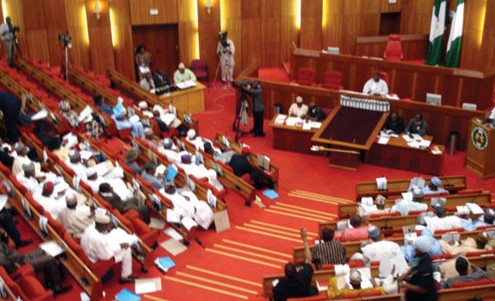 On Sunday, Femi Gbajabiamila, majority leader of the house of representatives, said it took former US President Barack Obama seven years to get the US out of recession.
On Sunday, Femi Gbajabiamila, majority leader of the house of representatives, said it took former US President Barack Obama seven years to get the US out of recession.
Gbajabiamila said this in defence of President Muhammadu Buhari, whose better time in office — as the nation’s leader — has been in a recession.
The learned lawmaker said people must understand “where we are coming from” before lamenting over the slow pace of the country’s redemption from the current economic crisis.
“We were at the rock bottom. If there is anything lower than the bottom, that was where we were. Let me use the United States as an example. When Obama came in, he inherited a recession not as bad as this, and that’s a country that functions,” Gbajabiamila had said.
“The first year, second, third, fourth, fifth year, into the second term, he didn’t recover – sixth year, it was perhaps a year to the end of his second term, that the United States started getting out of its recession.
“But we are asking that something should be done in a country that was in rot, far worse than the US was, in 18 months. Even if you are a magician, its more complicated than that. The president means well for this country. He has advisers who are good. I think we should give him a little more time.”
MAJOR CLAIM: US WAS IN A RECESSION FOR 7 YEARS
Femi Gbajabiamila
To successfully verify Gbajabiamila’s claim, we must first understand what a recession is.
The International Monetary Fund (IMF), CNNMoney, New York Times and leading economic bodies agree that a recession can be easily identified by “two consecutive quarters of decline in a country’s real (inflation adjusted) gross domestic product (GDP)”.
They, however, add that on a global scale, one may need more than this metric to call a recession. IMF particularly says “it is often better to consider a wider set of measures of economic activity to determine whether a country is indeed suffering a recession”
National Bureau of Economic Research (NBER), the authority for dating US recessions, defines the term as “a significant decline in economic activity spread across the economy, lasting more than a few months, normally visible in real GDP, real income, employment, industrial production, and wholesale-retail sales”.
In the world over, recessions typically last from a number of months to a little above one year.
According to The Economist, if a recession lasts more than two to three years — that is, if a country records negative GDP growth for more than two to three years — that country is no longer in a recession, but a depression.
Hence, if the US was in a recession for seven years as Gbajabiamila claims, then the country was in a depression under Obama.
WAS THE US IN A RECESSION OR DEPRESSION UNDER OBAMA?
The US got into a recession, with a major portion of the global economy in December 2007, recording a GDP decline of 5.1 percent in 2008.
Like Buhari, Obama campaigned to reposition the US economy. He took office on January 20, 2009, as the 44th president of the US, and hit the ground running.
In February 2009, Congress approved Obama’s $787 billion economic stimulus package. He immediately cut taxes, extended unemployment benefits, and funded public projects.
In six months — July, 2009 — GDP growth turned positive. The recession ended.
NBER records even show that the recession ended in June 2009, but positive growth was totally confirmed by July.
There was no single recession in the US, after Obama’s first six months in office.
VERDICT: Gbajabiamila’s claim on US recession lasting for seven years is totally false.









